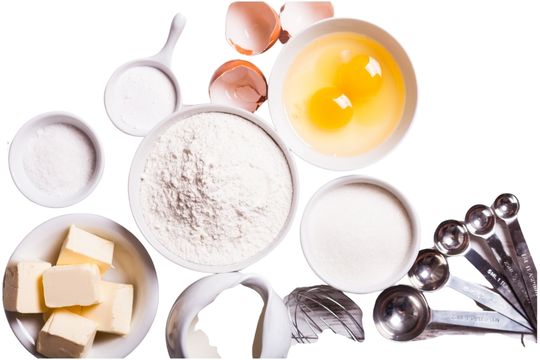
This is the traditional baking time of year, so it’s a good time to stock-up on basic baking ingredients. You probably have flour and sugar in your food storage. But what other baking ingredients do you consider indispensable? Watch for baking displays and sales promotions and stock up on your favorite baking supplies.
Week 46 Preparedness Challenge
This week’s challenge is to inventory and stock up on your favorite baking supplies. Think about the things you frequently bake, then list all the ingredients they call for. Estimate how many times you bake them in a month and that will help you determine the quantity you need to store.
If you are more inclined to purchase baked goods, you probably realize that in some crises you’ll likely have to rely on baking them yourself. What baked foods are you comfortable baking, and what ingredients do you need to bake them? Make a list of the baking ingredients you would need to replace the baked goods you usually buy. Are there any baking pans that you need to add or replace?
Inventory and stock up on enough of your favorite baking supplies for three months.
The Bulk-Goods Method of Food Storage
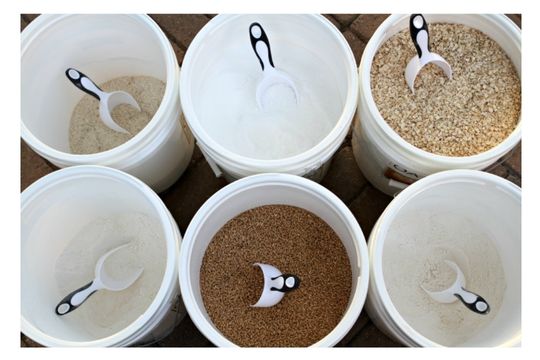
Some dry foods have a long storage life and are ideal for storing in large quantities for long term food storage. They are compact, life-sustaining, and have a long storage life when stored properly.
Baking ingredients like wheat, sugar, and dry milk, along with flour, oatmeal, and dried apples are good for storing in bulk quantities. Ideally, they should be packaged in airtight containers with oxygen absorbers.
ESTIMATED STORAGE LIFE OF BULK INGREDIENTS USED IN BAKING
The storage life of baking ingredients is optimized when they are stored in a cool, dry environment and packaged with oxygen absorbers. (Don’t package sugar with oxygen absorbers.)
- Wheat*: 30 years
- Sugar: Infinite
- Dry Milk: 20 years
- Flour: 10 years
- Oatmeal: 30 years
- Dehydrate Apples Slices 30 years:
*Store wheat if a wheat grinder is part of your storage.
The Pantry Method of Food Storage
In the Pantry Method of food storage, the idea is that you have a go-to storage pantry where you keep extra packaged and canned goods that you regularly use. Typically, I buy these items when they are on sale to stock up my pantry. I also keep a good supply of the frozen foods that we normally use.
How Does the Pantry Method Work?

Ideally, you have two pantries–a smaller kitchen pantry and a larger storage pantry.
The kitchen pantry is handy and easily accessible, so keep the supplies you use frequently here. Kitchens are often warm and humid, so, for longest storage life, store baking supplies away from the stove and in airtight containers.
The storage pantry is where you store extra quantities of the foods you frequently use. Store a minimum of two back-up packages. If you have the space and resources, and especially if it is something you use frequently, I recommend you store more than two packages. Ideally, for best storage practices, keep your storage pantry cool, dry, and dark.
WHAT IS KEPT IN A FOOD STORAGE PANTRY
Besides baking ingredients, the storage pantry is where you store extra canned fruits, vegetables, and meats, along with pasta, rice, mixes, condiments, paper products, etc. If you home can, this is where you store jars of fruit and vegetables.
USE AND ROTATE YOUR FOOD STORAGE
When you use up an ingredient and empty a container in your kitchen pantry, replace it with one from your storage pantry. That should still leave one back-up in your storage pantry. When it’s convenient, replace the one you removed from the storage pantry. That sounds simple, but the challenging part is to remember to purchase and replace what you have used. This week’s preparedness challenge will help you make sure you have an up-to-date supply of baking ingredients.
It’s also important to write the date on the packages as you purchase them to help you use the oldest product first.
What Baking Supplies Should You Have in Your Pantry?
In your pantry, begin with a supply of bulk storage items: flour, sugar, dry milk, oatmeal, etc. Store them in number 10 cans or five-gallon storage buckets. Next, store the short-term storage items that you need for baking. Remember to include spices and the unique specialty ingredients that you like. The highlighted baking ingredients below are linked to previous preparedness challenges. Click on the links for more in-depth discussions of their qualities and uses.
BASIC BAKING INGREDIENTS FOR YOUR PANTRY
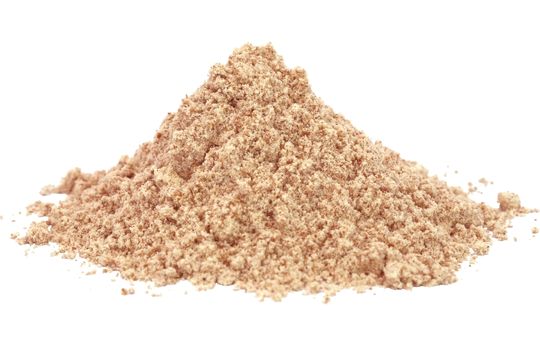
- Shortening: two years
- Oil: two years
- Brown sugar: two years
- Powdered sugar: two years
- Baking soda: three to five years
- Baking powder: eighteen months
- Corn starch: indefinite
The storage life for baking ingredients assumes that they are stored in airtight containers in a cool, dark, dry place. If they are stored in original cardboard containers they will be susceptible to moisture and their storage life will be much shorter. Better to store several containers in a storage bucket.
STORE YOUR FAVORITE BAKING MIX-INS
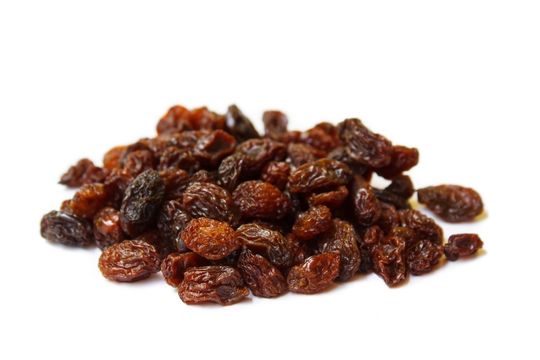
Chocolate chips are high on most lists of baking mix-ins. Dark chocolate has a shelf life of two years, while whole milk or white chocolate, which contain more dairy content, have a shelf life of about one year.
Which mix-ins you store depends on your baking preferences. In our family we keep a supply of cocoa, cream cheese, raisins, coconut, various nuts, evaporated milk, and pudding mixes.
STORE BAKING MIXES
Baking mixes are a smart idea for home storage. They may not produce the gourmet results that some bakers expect, but they are easy, convenient, and versatile—all good qualities in a time of crisis. Store cake mixes, brownie mixes, cookie mixes, and muffin mixes.
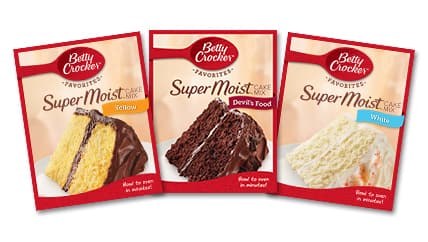
The downside is that they are packaged in thin plastic and cardboard which makes them susceptible to moisture and pantry pests like pantry moths and weevil. To minimize these problems and increase shelf life, store several containers of mixes in large sealed buckets. Or remove the plastic inner bag and store it in a sealed Mason jars along with baking directions.
SUBSTITUTE FOR EGGS
Many cake and mixes call for added eggs, but they are not necessary. In an emergency you can substitute a little more liquid and baking powder in their place.
Store Some Baking Ingredients in Your Refrigerator or Freezer
Your refrigerator and freezer are extensions of your pantry, much like the refrigerator- or frozen-section in a grocery store. Because of limited space in a refrigerator and short shelf life, you may not be able to store two back-ups. How much you store in the refrigerator will depend on how often and how quickly you use a product.
Baking Ingredients That Store Best in the Refrigerator:
- Whole milk
- Yogurt
- Cream
- Cheese
It is usually economical to purchase large containers, but the savings are lost if the food spoils before it can be used. Properly packaged, many items have a long shelf life in the freezer. Vacuum seal in bags to minimize oxidation and freezer burn.
Baking Ingredients That Store Best in the Freezer:
- Butter: 12 to 18 months
- Nuts: 12 to 18 months
- Frozen fruit: 12 months
- Yeast: Up to five years
What Is the Best Way to Store Eggs?
Eggs are an important baking ingredient. You have several options to make sure you have the eggs you need. I suggest that you store both fresh eggs and powdered eggs.
OPTION ONE: FRESH EGGS
Keep one or more dozen eggs as backup. Fresh eggs have a storage life of three months in the refrigerator. How many you store will depend on what you typically use.
OPTION TWO: POWDERED DRY EGGS
Powdered whole eggs or powdered egg whites are good options to use in baking. They can be added directly to the dry ingredients. One tablespoon of powdered egg white plus three tablespoons of water is equal to one fresh egg.
Scrambled egg mix has additional ingredients and are not intended to be used for baking.
How Much Should You Pay for Powdered Eggs?
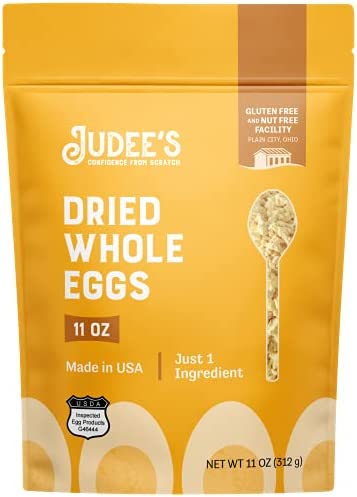
Powdered eggs are used commercially because of their convenience and because they are less expensive than fresh eggs. However, when they are repackaged for the consumer or food storage markets, they are often two to three times more expensive than fresh eggs. Still, powdered eggs are a practical way to insure that you will have eggs for baking. Compare the price per egg from various sources before purchasing. Powdered eggs are commonly available online.
The storage life for dry eggs is up to ten years if stored in a cool, dry, oxygen-free environment.
COMPARE PRICES
- Cracked-Up Powdered Whole Eggs $0.77 per egg
- Judee’s Whole Egg Powder $0.77 per egg
- Ready Hour Whole Egg Powder $1.22 per egg
- Wise Foods $1.39 per egg
- Auguson Farms $1.61 per egg
Learn More
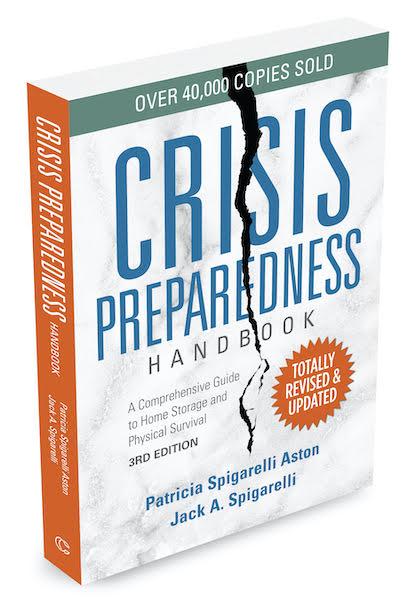
In my book Crisis Preparedness Handbook, Third Edition, find out more about storing foods for an emergency and other areas of emergency preparedness. You can find it on my website CrisisPreparedness.com. Or, read it on Amazon in the Kindle version–or get it as a regular book.
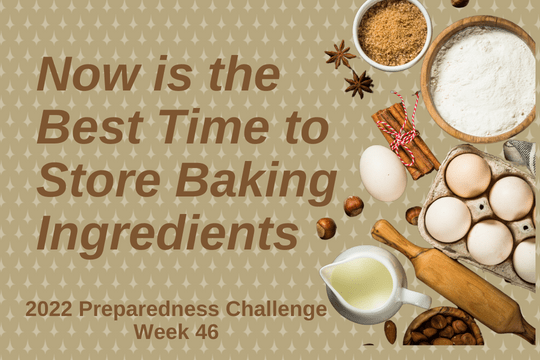


1 thought on “Now Is the Best Time to Store Baking Ingredients!”
Hi. Some suggestions for next year. You may have already done some of these, I just haven’t see them yet.
How much money/silver/gold and the advantages of small bills/coins vs large, and where to keep it
How to store ammunition, pepper spray, etc.
Self defense
Cooking outdoors when there is no electricity and the best things to cook on or in
Best solutions for lighting when the power goes out
Storing fuel
What types of generators there are and what they are used for
Best protections for home doors and windows, alarms
Types of filters for water purification from contaminated water
I really like how thorough your articles are and the research for them. I have learned a lot and am trying to get everything together, little by little.
Thank you.